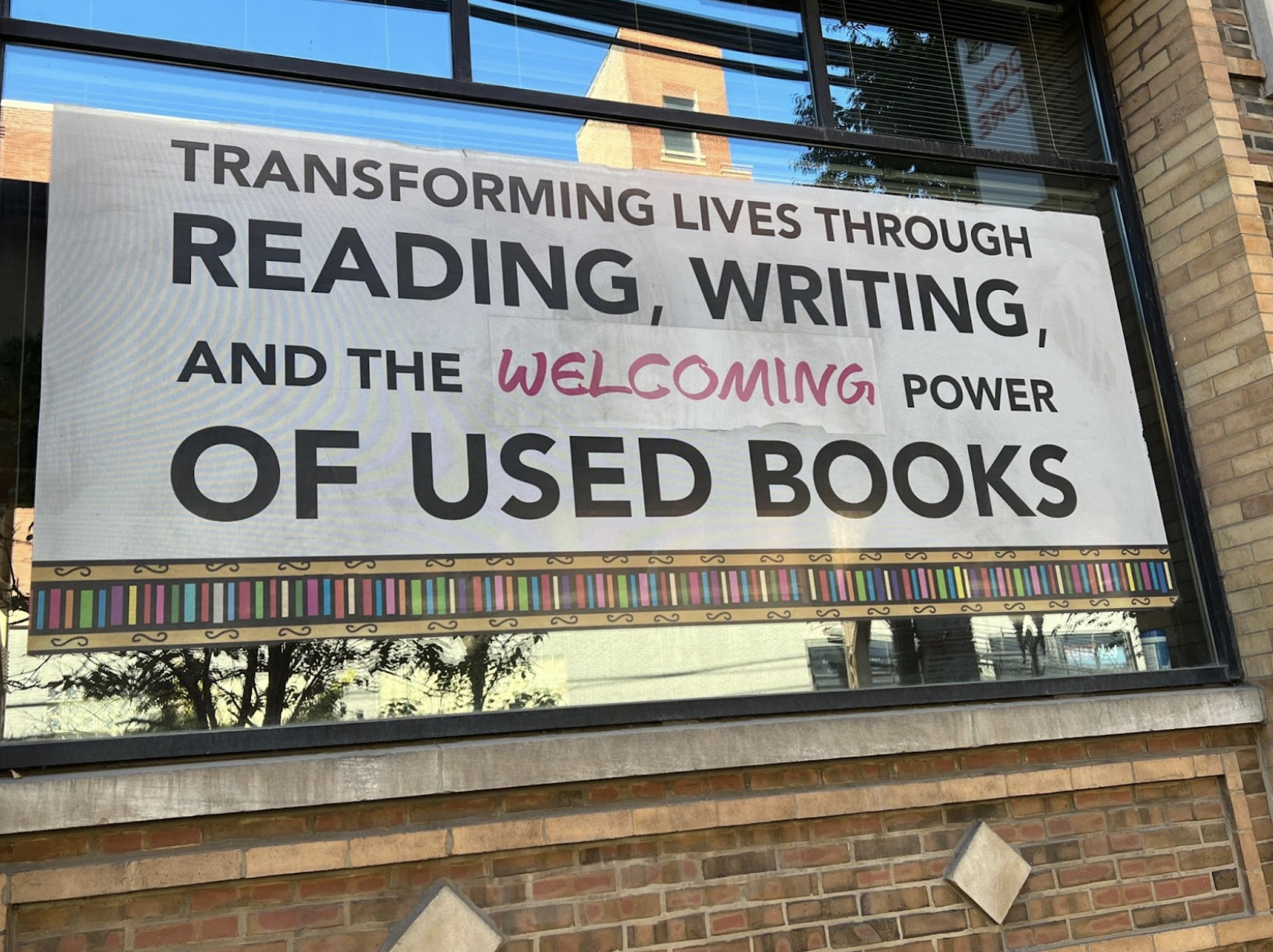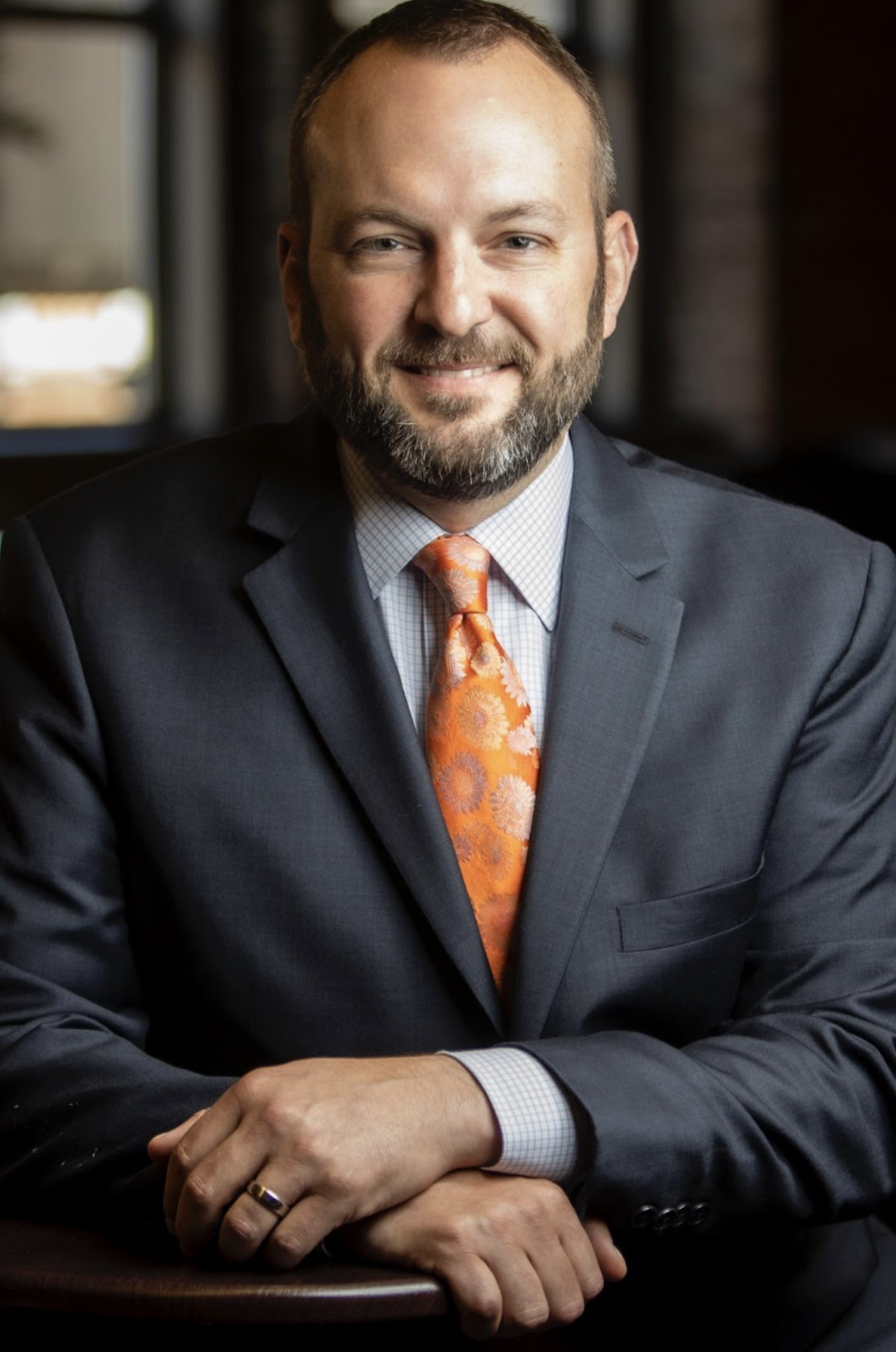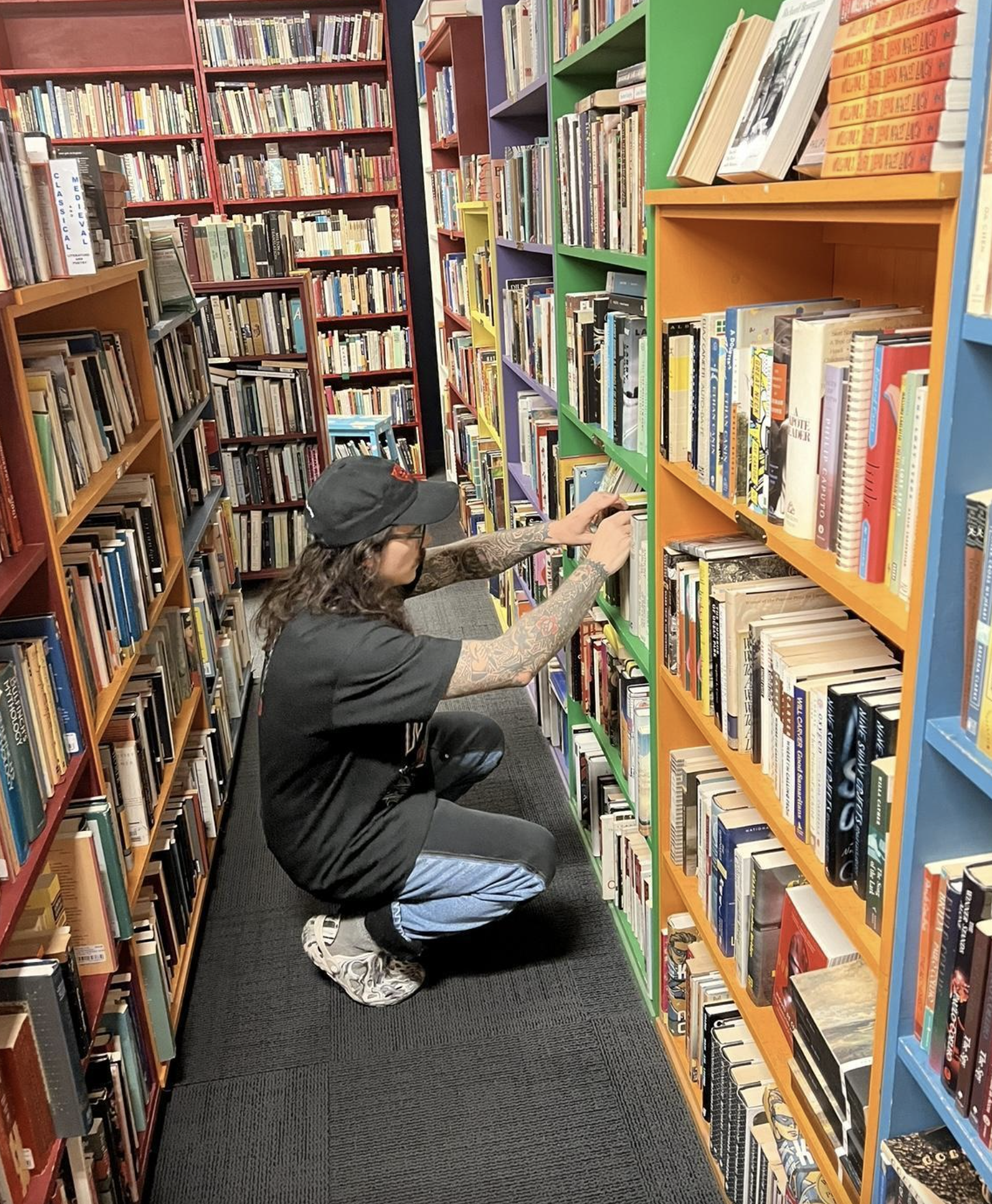
Eric Johnson loves books. When speaking with me, he rattled off a list of his favorite authors, from James Baldwin to Jonathan Franzen.
“Everything from Zora Neale Hurston always grabs me. She just has such a way of capturing dialect and a way of life in the South,” said the SESP ‘13 graduate and executive director of Open Books, a nonprofit that runs two Chicago bookstores in Pilsen and the West Loop.
After a pandemic year that shuttered over 400,000 small businesses in the U.S. and seen a historic rise in inflation, Johnson plans to expand Open Books with the latest location set to open in Logan Square in November. Besides opening a new bookstore, he wants to collect over 250,000 books through donations to either sell at a discount or give away. Johnson also aims to increase the diversity and quality of the literature his stores donate and continue rebuilding his organization’s North Lawndale Reads program for a post-lockdown Chicago.
Johnson began working as the executive director of Open Books in 2018. Just two years later, he needed to figure out how to keep the company running during the pandemic.
“The ability to be an organization that is predicated on physical things and physical contact became very difficult,” Johnson said.
Turning to curbside pickups and refocusing the stores’ focus to its online presence, Johnson breathed life into Open Books. According to Johnson, the bookstore didn’t see a significant drop in business during the pandemic.
Johnson’s Journey

Raised in Portsmouth, Virginia, Johnson describes his upbringing as chaotic. The son of a bricklayer and a stay-at-home mom, his parents divorced when he was only five. Raised primarily by his mother, he watched his father move on from the trades and succeed as a businessman developing hospital and shopping mall real estate.
At 14, Johnson decided he didn’t care about big paychecks. Instead, he wanted to make positive change in the world and society.
“When I think back [to] my own childhood, I spent most of the time appreciating what hard work and education can afford a lot of people,” Johnson said.
He didn’t know how to accomplish his lofty goals as a first generation student at the University of Virginia but he did have a love for literature.
After Johnson earned a bachelor’s degree in sociology, he sought reinvention and crossed the country to work in the Seattle area as an AmeriCorps volunteer. He worked with students there, leading service-learning programs for middle school students.
Johnson moved to Chicago in 2004 to work for Accelerate Institute, formerly known as the Inner-City Teaching Corps, as a communications/development director.
He established roots in the city by getting married, raising two daughters and graduating from Northwestern’s School of Education and Social Policy with a graduate degree in learning and organizational change.
“[The program] really inspired me and so set me up really well to think about running a pretty small to midsize organization,” Johnson said.
Johnson has dedicated himself to organizations fighting for the literacy of Chicago’s often-underserved communities for the past 18 years. Before coming to Open Books, he worked in teacher development for Chicago Charter schools and The Golden Apple Foundation.
Open Books’ New Intentionality
Johnson’s addition to Open Books’ leadership team has sharpened the nonprofit’s mission, according to Zylon Tokash, Open Books’ manager of retail operations.
“He came around right before the pandemic, so there's been a lot of changes, but to me the biggest one is that we're specifically targeting neighborhoods that have historically lacked access to books,” Tokash said.
Open Books opened in 2006 with a general focus of empowering Chicago residents with good literature. The bookstore's West Loop location reflects the organization’s plain origin and looks like a rather paint-by-the-numbers independent used bookstores — albeit slightly larger than most, with around 70,000 titles in its collection. Literature wraps the walls, bestsellers sit out front and biographies, cookbooks and poetry run through the center of the store.
Due to Johnson’s input, the Pilsen location, however, is a radically different experience from most bookstores. Built in a warehouse, the storefront features concrete floors, snaking walls of bookshelves and an expansive children’s section. Johnson helped design an entirely new economic model for the Pilsen location. Every single book in the children’s section is free, and the store sells all of its other books through a pay-what-you-want system. Johnson sets aside entire Saturdays to leave the office and “come off the bench” to move inventory in the warehouse and nurture the innovative shop in-person.
Karen Duncan, a former physical education teacher, has been volunteering at Open Books for two years shelving books. Duncan also participates in the Reading Buddies program, an after-school literacy program that pairs underserved students with volunteers and enjoys working with Johnson.
“He's a really great leader,” she said. “He's inclusive. He's really interested in learning people's experiences. I find him to be open to ideas, suggestions, [and] feedback.”
Johnson also helped launch Open Books’ North Lawndale Reads program in 2021. The program creates pro-literacy events, spaces and messaging for the North Lawndale community. Open Books also operates a series of Little Free Libraries throughout the area.
These Little Free Libraries represent just one of Johnson’s endeavors to get books into Chicago’s underserved communities. Tokash said that every title in Open Books’ collection is donated, often by community members and local businesses. However, the organization does not sell every book it receives and redistributes a significant amount of its donations. Johnson’s leadership has tried to expand Open Books’ recirculation programs and get books into the hands of students by any means necessary – whether through establishing grants for teachers, handing them out at barbershops or by setting up tables in parks.
Johnson recalled feeling overjoyed when he received a thank you note from her after one teacher received a book grant to fill her classroom’s library. The grant had saved her from spending her own money to stock her classroom.
“It's those moments where we get the anecdotal confirmation that we're helping to fill gaps,” Johnson said.

Moving Forward
With the soft launch of Open Books’ Logan Square storefront fast approaching, Johnson reflected on the odyssey of opening a third store after the pandemic.
Open Books delayed its new launch to the summer despite it being originally slated to open in early spring of 2020, and then moved it to November due to building code issues, miscommunication with the new landlord and permit issues.
“I haven't talked to a single person who opened a small business in Chicago, where the timeline didn't get stretched out because of permitting and contractors and city agencies,” Johnson said.
Other conflicts in Johnson’s life have also caused distractions during the opening process. Split between meetings, fundraising, working in the Pilsen storefront and checking in with workers, he said he will be looking for outside support to “free up some bandwidth.”
Still, Johnson said he has learned hard lessons about running a nonprofit business but has maintained a positive mindset throughout the process. He was excited about what opening the third storefront would mean for the surrounding community and Open Books’ overall operations. Besides housing nearly 70,000 more donated titles, the new location will expand the business’s reach in Chicago’s Northwest neighborhoods. The additional book sales and collection at the new store will also increase the funding and supply the organization’s literacy initiatives. Already, the organization has plans to host a Christmas party in December for Chicago’s Franklin Park neighborhood to hand out free books and toys.
Now, as Johnson approaches a new chapter in his business and life, he wants to answer big questions to determine Open Books’ future.
“What can we do to reset and rescale by way of our programs?" Johnson asked. "How do we reach an aggressive, yet reasonable scale so that we are impacting as many kids as we possibly can?”